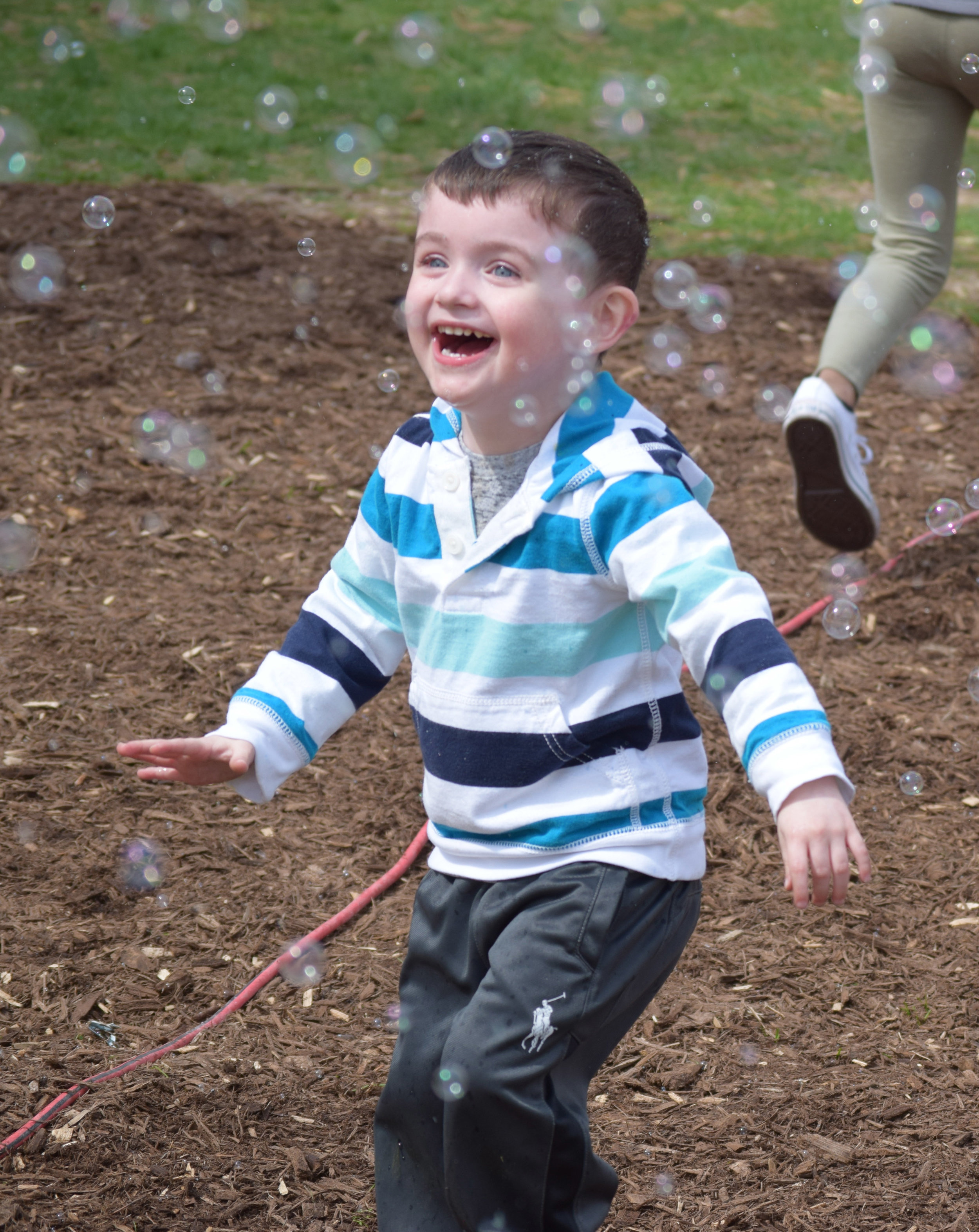Fun in the sun: Here are four key ways playing outside helps your child
Sometimes it’s just easier to stay indoors with your child and read a book, watch a movie, or build a tower with blocks.
Playing outside, however, is important to your child’s development. Here are some ways it helps:
1. Imagination
Playing outdoors stimulates children’s creativity. You might be surprised by what your children can create with some sticks, dirt, leaves and rocks that they find in the yard. The outdoors also provide a new and different setting where they can use their imagination to take them to new and faraway places.
“Playing in the yard or on the playground chasing one another, pretending to be characters or other people, challenges them to think creatively,” said Laura Woodall, lead teacher at Oakland Family Services’ Children’s Learning Center in Walled Lake. “They learn to cooperate with one another by assigning roles and deciding who will be who in their pretend world.”
2. Muscle Development
Playing outside is a great way for children to exercise and have fun at the same time! Children who play outside generally are more physically fit than those who spend their time inside the house watching TV or playing video games. Kids can strengthen their muscles just by doing everyday activities they love to do.
“With their physical growth, outdoor play increases the small muscles in their fingers simply by doing things like picking up rocks, rolling over logs to find insects and drawing in the dirt or sand with their fingers or sticks,” Woodall said. “For large muscle development in their legs and arms, jumping over logs, running in a field, or swinging or climbing slides at a playground all help strengthen those muscles.”
3. Socialization
Bringing your children to a park or playground is a way for them to interact with other kids. Here they can meet new children and make new friends. Playing outdoors also teaches children some important life skills, such as sharing, taking turns and solving problems.
4. Self-confidence
Through exploring and trying new things, children gain confidence and feel good about themselves. They have the freedom to choose what they want to do and explore what interests them instead of having an adult plan their activities.
“It empowers children to feel as though they can try new things in a supervised, safe environment,” Woodall explained. “If they want to rub a rock on a piece of bark, that’s ok. They feel like they can be the boss and have authority. It also makes them feel proud about what they can do.”



